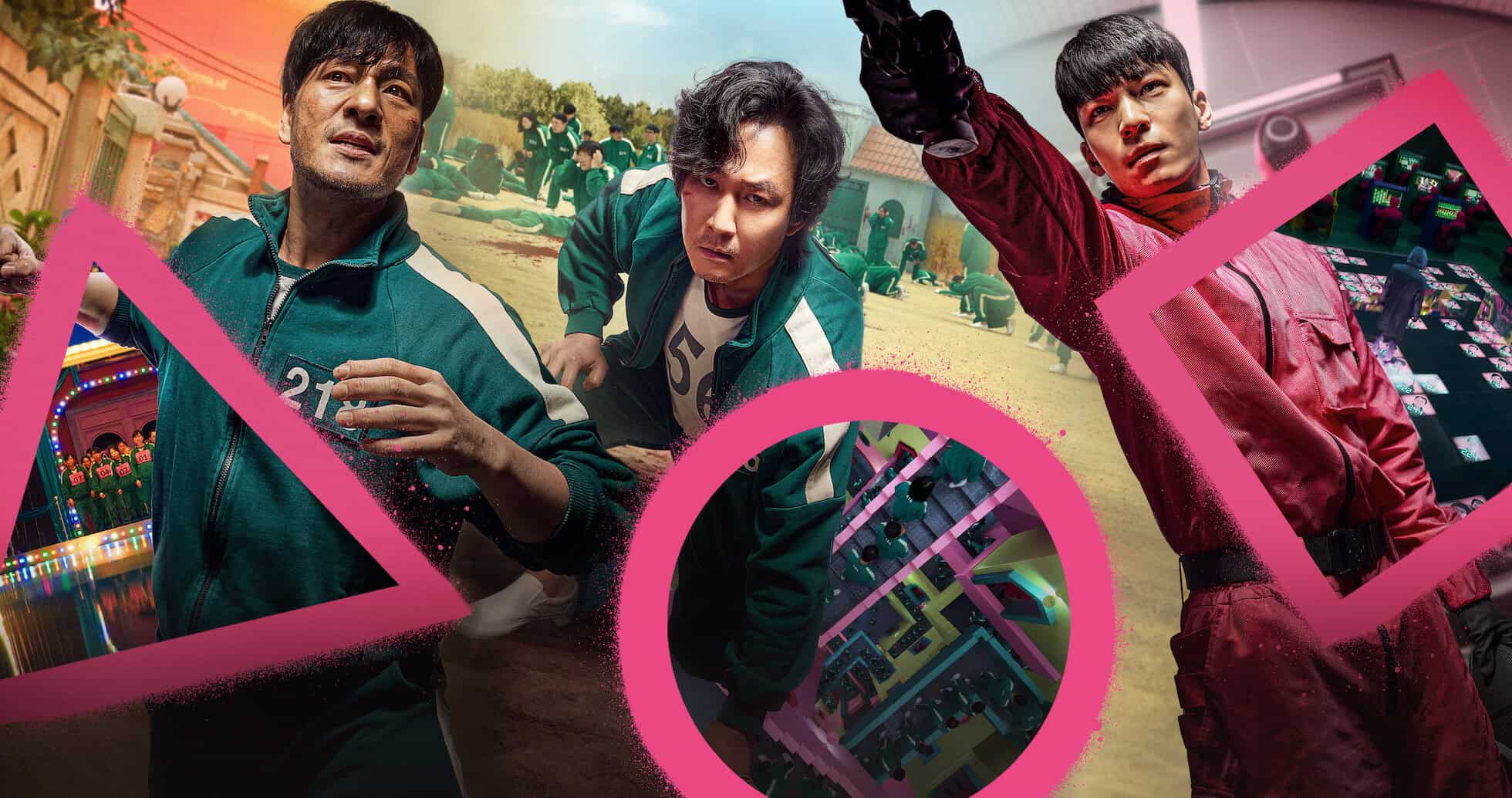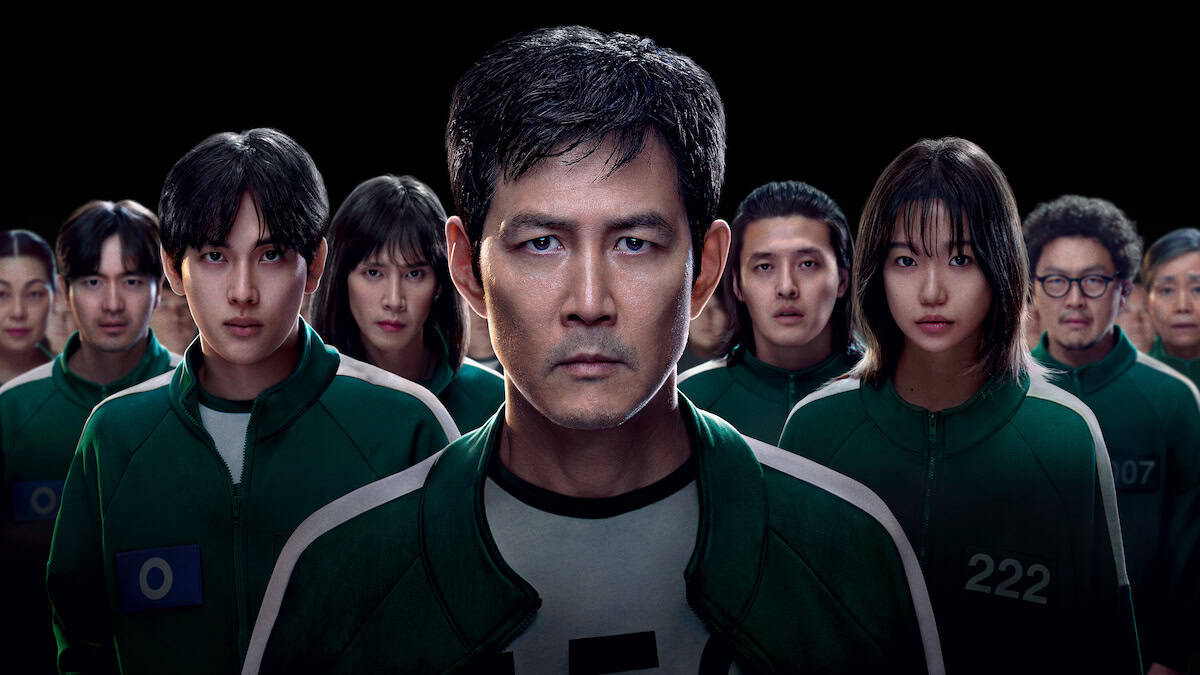Squid Game has never been just about survival—it’s about who people become when pushed to the brink. As the world braces for the highly anticipated third and final season on June 27, 2025, Netflix has unveiled fresh details that promise a dramatic and emotionally intense conclusion. Let’s explore the core characters returning, the new faces joining the blood-soaked stage, and how these figures shape the heart of Squid Game’s moral chaos.
Season 3 Overview: A War of Wills and Redemption
Lee Jung-jae returns as Seong Gi-hun (Player 456), no longer just a reluctant survivor. Now a man on a mission, Gi-hun seeks to dismantle the system from within. Season 2 saw him abandon his plan to flee and instead vow revenge. Season 3 opens with Gi-hun entering the next cycle of games not as prey, but as a disruptor—raising the stakes for everyone involved.
Opposing him is Lee Byung-hun’s Hwang In-ho, aka The Front Man, whose icy control over the game’s operations is threatened by Gi-hun’s unpredictable actions. Once a police officer, In-ho now embodies the corruption and ruthlessness of the system. His storyline delves into personal guilt, betrayal, and the cost of power.
New and Returning Characters
Season 3 blends legacy characters with a compelling new roster of players:
| Actor | Character | Description |
|---|---|---|
| Wi Ha-jun | Hwang Jun-ho | The missing police officer returns, with many questioning how he survived being shot by his brother, The Front Man. |
| Im Si-wan | Lee Myung-gi | A quiet, strategic player whose moral compass may rival even Gi-hun’s. |
| Kang Ha-neul | Kang Dae-ho | A charismatic manipulator hiding a violent edge—set to be a major antagonist. |
| Park Gyu-young | Kang No-eul | A resilient young woman grappling with a traumatic past, forming unlikely alliances. |
| Park Sung-hoon | Cho Hyun-ju | A former cult member—his storyline explores blind faith in destructive systems. |
| Yang Dong-geun | Park Yong-sik | Introduced in Season 2, now with a deeper arc tied to the game’s organizers. |
| Kang Ae-shim | Jang Geum-ja | A grandmotherly figure masking deep secrets, with ties to past winners. |
| Jo Yu-ri | Kim Jun-hee | A street-smart teen whose empathy clashes with the game’s cruelty. |
| Lee David | Park Min-su | A fast-talking gambler looking for redemption. |
| Roh Jae-won | Nam-gyu | The youngest contestant, facing horrors far beyond his years. |
New Symbol of Horror: Meet Cheol-su
Just as Season 1’s robotic doll Young-hee became an icon of terror, Season 3 introduces Cheol-su, her male counterpart. Teased in Season 2’s post-credits, Cheol-su reportedly plays a central role in one of the early challenges—an updated, far deadlier version of Red Light, Green Light. The pairing of Young-hee and Cheol-su introduces unsettling themes around childhood, innocence, and surveillance.

Themes: More Than Survival
Creator Hwang Dong-hyuk has confirmed that Season 3 will delve deeply into:
- Guilt and Moral Compromise: Characters like Gi-hun and Jun-ho face the psychological aftermath of their past actions.
- Systemic Power: The season critiques institutional control, class warfare, and the illusion of choice.
- Humanity vs. the Game: Contestants will face moral decisions that don’t involve killing—but sacrifice, betrayal, or choosing who deserves to live.
Unlike earlier seasons that focused heavily on death games, Season 3 will reportedly feature more psychological games, designed to break alliances and warp perception rather than just eliminate players.
Iconic Roles: Beyond the Players
The show’s eerie infrastructure is just as iconic as its characters. The masked guards, VIPs, and Front Man are more than just scenery—they’re symbols of how power hides in anonymity and ritual. Season 3 promises to peel back more layers of the organization behind the games, revealing a hierarchy of cruelty that extends far beyond the arena.
We may even learn more about the founders of the games, rumored to be teased through flashbacks and dossiers discovered by returning characters.
Official Trailer: First Look at the Endgame
The newly released trailer offers a fast-paced look at emotional breakdowns, fiery explosions, new arenas, and confrontations between Gi-hun and the Front Man. A voiceover hints at Gi-hun’s internal conflict: “To destroy the game, I may have to become part of it.”
Why These Characters Matter
Squid Game’s greatest strength lies in how its characters reflect the viewers themselves: people faced with impossible decisions. Whether it’s a mother risking it all to support her child or a man trying to redeem himself for past mistakes, the emotional core of the show comes from its cast. Season 3 aims to go beyond survival horror—it’s about human nature when the system is rigged and the rules no longer matter.
As the series finale approaches, expect betrayal, uneasy alliances, and moral reckonings that will reshape what Squid Game truly means.
Key Takeaways
- Squid Game features a diverse cast of characters with unique backgrounds and motivations that drive the story forward.
- Main characters like Seong Gi-hun, Kang Sae-byeok, and Cho Sang-woo face moral dilemmas that reveal their true nature under pressure.
- The show’s character design, from contestants to masked staff, creates visual impact that enhances the narrative’s psychological elements.
Overview of ‘Squid Game’
“Squid Game” is a South Korean survival drama series that captivated global audiences with its brutal portrayal of desperate individuals competing in deadly children’s games for a massive cash prize. The show blends social commentary with intense suspense, examining wealth inequality and human behavior under extreme pressure.
Series Synopsis
In “Squid Game,” 456 players facing severe financial difficulties are invited to participate in a mysterious competition. The main protagonist, Seong Gi-hun (Player 456), is a divorced gambling addict who enters the game to gain custody of his daughter and pay off mounting debts.
The contestants compete in six rounds of traditional Korean children’s games. Each elimination isn’t just a loss – it results in death. As players navigate the increasingly dangerous challenges, alliances form and break.
The series also follows police officer Hwang Jun-ho, who infiltrates the organization to find his missing brother. His investigation reveals the dark infrastructure behind the games, including the enigmatic Front Man who oversees the competition.
Themes and Significance
“Squid Game” offers sharp criticism of capitalism and class disparity. The show portrays how economic desperation drives people to risk their lives for money, reflecting real-world inequality.
The series examines human morality when survival is at stake. Players must decide whether to betray allies or maintain their humanity while facing death. This creates complex character dynamics as individuals reveal their true nature under pressure.
The game’s twisted use of childhood nostalgia creates a disturbing contrast. Innocent games become deadly spectacles, serving as metaphors for how society’s systems can corrupt fundamental human experiences.
The show’s international success demonstrates its universal themes that resonate across cultures. Its distinctive visual style, with bright colors and geometric designs, creates a memorable aesthetic that enhances its psychological impact.
Main Characters
Squid Game features several memorable main characters who navigate the deadly competition, each driven by desperate circumstances and a chance at financial redemption. Their complex personalities and backstories add depth to the intense survival drama.
Seong Gi-hun (456)
Seong Gi-hun, Player 456, serves as the protagonist of Squid Game. A divorced chauffeur with a gambling addiction, Gi-hun joins the games to pay off his debts and become a better father to his daughter.
His kind-hearted nature sets him apart from many contestants. Despite the brutal competition, Gi-hun maintains his humanity and forms genuine connections with other players.
Throughout the games, Gi-hun experiences significant character development. He transforms from a desperate, down-on-his-luck gambler to someone willing to make enormous sacrifices for others.
His red hair in the season finale symbolizes his transformation and newfound purpose. As the ultimate winner of the games, Gi-hun discovers that wealth comes with unexpected burdens and moral responsibilities.
Cho Sang-woo (218)
Cho Sang-woo, Player 218, is Gi-hun’s childhood friend and former business prodigy. As a graduate of Seoul National University and successful investment banker, Sang-woo was once the pride of his neighborhood.
His storyline reveals the tragic fall from grace after embezzling company funds and facing imminent arrest. This desperation drives him to participate in the deadly games.
Sang-woo’s character embodies the moral corruption that extreme competition can foster. Initially depicted as intelligent and strategic, he gradually shows a ruthless side, willing to betray allies to ensure his own survival.
His relationship with Gi-hun creates one of the series’ most compelling dynamics. Their childhood friendship contrasts sharply with their current rivalry, culminating in an emotionally charged final confrontation.
Kang Sae-byeok (067)
Kang Sae-byeok, Player 067, is a North Korean defector with exceptional survival skills. Her primary motivation for entering the games is to earn money to reunite her family, particularly to bring her mother from North Korea and retrieve her younger brother from an orphanage.
Sae-byeok’s character is defined by her independence and initial reluctance to trust others. Her tough exterior masks deep vulnerability and longing for family connection.
As the games progress, she gradually opens up, particularly forming a meaningful bond with Ji-yeong (Player 240). Their brief but poignant friendship provides one of the series’ most touching moments.
Skilled in knife fighting and pickpocketing, Sae-byeok’s resourcefulness makes her a formidable competitor. Her character represents resilience in the face of systemic challenges that refugees often encounter.
Oh Il-nam (001)
Oh Il-nam, Player 001, initially appears as an elderly man with a brain tumor who joins the games for excitement rather than financial need. As the oldest participant, he brings a unique perspective to the competition.
His seemingly innocent and grandfatherly demeanor wins the affection of Gi-hun, who forms a protective bond with him. Throughout various games, Il-nam displays surprising mental acuity despite his apparent physical frailty.
The series delivers a shocking twist when Il-nam is revealed to be the wealthy creator of the games. His participation stems from a desire to feel alive again after becoming bored with his immense wealth.
This revelation fundamentally changes the understanding of his character. His actions raise profound questions about power, entertainment, and how the ultra-wealthy view human suffering as spectacle.
Jang Deok-su (101)
Jang Deok-su, Player 101, embodies the archetype of a ruthless gangster. With his intimidating physical presence and violent background, he quickly establishes himself as one of the games’ primary antagonists.
Deok-su forms an alliance of strong players to dominate the competition. He rules through fear and doesn’t hesitate to eliminate anyone who challenges his authority or becomes a liability.
His criminal history includes stealing from his boss and violent acts that forced him into hiding. The games provide both a financial solution and an environment where his brutal tactics become an advantage.
Despite his strength and cunning, Deok-su’s fear eventually exposes his vulnerability. His relationship with Han Mi-nyeo creates an unpredictable dynamic that ultimately contributes to his downfall in a surprising twist of fate.
Han Mi-nyeo (212)
Han Mi-nyeo, Player 212, is characterized by her unpredictable behavior and manipulative tactics. Her loud personality and willingness to align with anyone who might offer protection make her a wild card in the competition.
Mi-nyeo’s character demonstrates remarkable adaptability. When rejected by Deok-su’s alliance, she transforms her hurt into a determined vendetta, eventually making good on her promise of revenge.
Despite her often abrasive exterior, Mi-nyeo reveals moments of genuine emotion and vulnerability. Her claim of having a child adds another dimension to her motivation for joining the deadly games.
Her memorable catchphrase, “I’m good at everything, except the things I can’t do,” encapsulates her contradictory nature. Mi-nyeo represents how desperation can drive someone to extreme measures while maintaining their distinct personality throughout.
Ali Abdul (199)
Ali Abdul, Player 199, is a Pakistani migrant worker who enters the game after being exploited by his Korean employer. His gentle nature and strong moral compass make him stand out among the contestants.
Despite facing discrimination and hardship, Ali maintains his decency and willingness to help others. This is demonstrated when he saves Gi-hun’s life during the first game, establishing himself as an honorable participant.
Ali’s trusting nature creates both meaningful connections and devastating vulnerability. His relationship with Sang-woo highlights the contrast between his inherent goodness and the moral compromises others make to survive.
His storyline powerfully illustrates the exploitation faced by foreign workers in Korean society. Ali’s character brings important social commentary to the series while remaining one of its most genuinely likable personalities.
Supporting Characters
Several compelling supporting characters add depth to the Squid Game narrative. These individuals play crucial roles that influence the main characters’ journeys and provide important perspectives on the deadly competition.
Ji-yeong (240)
Ji-yeong, also known as Player 240, is a young woman with a troubled past. She forms a meaningful bond with Kang Sae-byeok (Player 067) during the games. Their relationship develops particularly during the marble game, where they partner up.
Instead of competing aggressively, they spend their time sharing personal stories. Ji-yeong reveals her tragic background – she killed her abusive father who had murdered her mother, leading to her imprisonment.
In one of the show’s most heartbreaking moments, Ji-yeong sacrifices herself by deliberately losing the marble game. She chooses to let Sae-byeok continue in the competition, recognizing that Sae-byeok has something to live for – her brother waiting outside.
Her character represents selflessness amid the competition’s brutality. Though her screen time is limited, Ji-yeong’s impact on both Sae-byeok and viewers remains significant.
Hwang Jun-ho (Police Officer)
Hwang Jun-ho is a determined police officer who infiltrates the Squid Game facility while searching for his missing brother. His storyline provides viewers with a crucial outside perspective on the games’ organization.
Jun-ho disguises himself as a guard, allowing him to move through different areas of the facility. Through his eyes, the audience witnesses the inner workings of the game’s brutal hierarchy and operations.
He documents evidence of the games using his phone, intending to expose the illegal competition to authorities. His investigation reveals disturbing details about how the guards treat the players and dispose of bodies.
In a shocking twist, Jun-ho discovers that his missing brother became the Front Man of the operation. Their confrontation on the cliff leads to Jun-ho being shot and falling into the ocean, though his ultimate fate remains ambiguous.
The Front Man
The Front Man serves as the masked operational leader of the Squid Game. He oversees the games directly, ensuring they run according to established rules and protocols. His true identity is revealed to be Hwang In-ho, the missing brother of police officer Jun-ho.
In-ho won the games in 2015, which explains his intimate knowledge of the competition’s mechanics. Despite experiencing the games’ brutality firsthand, he chose to become part of the organization rather than oppose it.
The Front Man maintains strict order among both players and staff. He eliminates anyone who threatens the integrity of the games, including guards who mistreat players against the rules.
His character represents the corrupting influence of power and wealth. The transformation from victim to perpetuator raises questions about how trauma and money can fundamentally change someone’s moral compass.
The Salesman
The Salesman, played by Gong Yoo, appears briefly but serves a pivotal role in the Squid Game universe. He recruits desperate individuals to participate in the deadly competition through a seemingly innocent game of ddakji.
At subway stations, he approaches potential players who appear financially desperate. He offers them money for successful rounds of the paper-flipping game, then presents them with a business card containing a phone number.
This mysterious figure acts as the gateway between ordinary life and the hidden world of the games. His polished appearance and charismatic demeanor contrast sharply with the deadly competition he represents.
The Salesman operates without revealing his own motivations or background. His character symbolizes how predatory systems target vulnerable people by offering false hope, presenting deadly exploitation as opportunity.
Creators and Cast
The success of Squid Game stems from both its innovative creator and the talented cast who brought the characters to life. Each actor delivered compelling performances that resonated with audiences worldwide.
Hwang Dong-hyuk (Creator/Director)
Hwang Dong-hyuk is the visionary mind behind Squid Game. He wrote and directed the series, drawing inspiration from his own economic struggles and South Korean social issues.
Hwang spent nearly a decade trying to get Squid Game produced. Many studios initially rejected his script for being too violent and unrealistic. Netflix finally picked up the project in 2019.
His dedication paid off when the show became Netflix’s most-watched series ever. Hwang’s direction earned him an Emmy Award for Outstanding Directing for a Drama Series in 2022.
Before Squid Game, he directed several acclaimed films including “Silenced” and “The Fortress.” His storytelling often tackles social inequality and moral dilemmas.
Lee Jung-jae (Actor for Seong Gi-hun)
Lee Jung-jae portrays Seong Gi-hun (Player 456), the main protagonist of Squid Game. His performance as a desperate father in debt earned widespread praise.
Lee is a veteran actor in South Korea with a career spanning three decades. His portrayal of Gi-hun’s transformation throughout the games showcased his impressive emotional range.
For his role in Squid Game, Lee won multiple awards including an Emmy for Outstanding Lead Actor in a Drama Series. This made him the first Asian actor to win in this category.
Before Squid Game, he starred in popular Korean films like “The Housemaid” and “New World.” Lee returns for Season 2, continuing Gi-hun’s story as he confronts the game organizers.
Park Hae-soo (Actor for Cho Sang-woo)
Park Hae-soo plays Cho Sang-woo (Player 218), Gi-hun’s childhood friend who becomes his rival. His complex portrayal of a once-successful businessman turned desperate competitor was compelling.
Park masterfully depicted Sang-woo’s moral decline throughout the series. His character’s intelligence and willingness to betray others to survive created one of the show’s most fascinating arcs.
Prior to Squid Game, Park gained recognition for his role in the prison drama “Prison Playbook.” His performance in Squid Game elevated his international profile significantly.
Park’s nuanced acting captured Sang-woo’s internal conflict between survival and humanity. This earned him nominations for several prestigious awards.
Wi Ha-joon (Actor for Hwang Jun-ho)
Wi Ha-joon portrays Hwang Jun-ho, a police detective who infiltrates the games to find his missing brother. His storyline provides viewers with a crucial outside perspective on the games.
Through Jun-ho’s eyes, audiences discover the inner workings of the organization behind the deadly competition. Wi’s performance balances determination with vulnerability as his character navigates dangerous territory.
Before Squid Game, Wi appeared in Korean dramas like “Romance Is a Bonus Book” and “18 Again.” Squid Game marked his breakthrough to international audiences.
Wi returns in Season 2, continuing Jun-ho’s storyline. His character’s connection to the Front Man (played by Lee Byung-hun) adds an emotional layer to the show’s examination of power and control.
Character Development
Squid Game shows remarkable character growth throughout the series, particularly in how characters change under extreme pressure. The development of relationships and individual arcs reveals deeper insights into human nature when survival is at stake.
Character Arcs
Seong Gi-hun demonstrates the most significant character development in the series. He begins as a struggling gambler stealing from his mother and failing as a father. Through the deadly games, his moral compass strengthens despite desperate circumstances.
The transformation isn’t limited to the protagonist. Player 067, Kang Sae-byeok, evolves from a cold, distrustful North Korean defector to someone capable of forming meaningful connections. Her protective walls gradually lower as she interacts with other players.
Cho Sang-woo’s arc moves in the opposite direction. Starting as a seemingly successful businessman, his character deteriorates as the games progress, revealing how survival pressure can corrupt even educated, accomplished individuals.
Each character faces moral dilemmas that test their values and reveal their true nature, making their development both compelling and realistic.
Relationship Dynamics
The relationships between contestants evolve dramatically throughout Squid Game. Initial distrust and competition gradually give way to selective alliances and sometimes genuine bonds. Gi-hun’s friendship with Player 001 (Oh Il-nam) becomes particularly significant, though it later reveals shocking complexities.
The dynamic between Sae-byeok and Ji-yeong demonstrates how connection can form even in brutal circumstances. Their brief but meaningful relationship showcases how vulnerability can emerge when facing death.
Trust becomes a valuable yet dangerous currency in the game. Players must calculate whether forming teams improves survival chances or creates vulnerabilities. These shifting alliances highlight how quickly relationships transform under pressure.
The pregnant contestant and her ex-boyfriend represent another layer of relationship complexity, showing how past connections influence current decisions. Their storyline, though less developed than others, adds depth to the social commentary.
Costumes and Design
The visual elements of Squid Game are carefully designed to highlight social hierarchies and control within the deadly competition. Each character group wears distinctive clothing that serves both practical and symbolic purposes.
Player Uniforms
Players in Squid Game wear simple green tracksuits with white stripes and their assigned numbers prominently displayed. These uniforms create a visual equalizer, stripping away social status and wealth differences that existed in the contestants’ outside lives.
The tracksuit design was inspired by Korean school uniforms from the 1970s, according to costume designer Cho Sang-kyung. This nostalgic connection reinforces the childlike games theme while creating a stark contrast with the deadly stakes.
Each player’s white slip-on shoes completes the uniform, making everyone appear identical regardless of background. The numbered shirts allow for easy identification while symbolizing how the game reduces people to mere numbers in a system.
Guard Outfits
Guards wear striking pink (sometimes described as red) jumpsuits with black masks featuring geometric shapes. These outfits create an intimidating, dehumanized presence within the game environment.
The jumpsuit color provides sharp visual contrast against the players’ green uniforms, immediately identifying who holds power. The full-body coverage ensures guards remain anonymous, preventing players from knowing who controls their fate.
Each guard’s geometric mask shape indicates their rank within the organization:
- Circle: Lowest rank (workers/soldiers)
- Triangle: Middle rank (armed guards)
- Square: Highest rank (managers)
This hierarchy system uses simple visual cues to communicate complex power structures without words, enhancing the show’s dystopian atmosphere.
Mask Design for Key Figures
The Front Man, who oversees the games, wears a distinctive black geometric mask that sets him apart from regular guards. His mask features angular, sculpted elements that create an intimidating silhouette, emphasizing his authority.
The VIPs who watch the games wear animal-inspired gold masks, highlighting their wealth and predatory nature. Each mask represents a different animal (bull, lion, deer, etc.), suggesting these wealthy spectators view the players as prey for their entertainment.
These elaborate masks serve multiple purposes: preserving anonymity, creating visual interest, and symbolizing the dehumanization central to the games. The contrast between the VIPs’ ornate gold masks and players’ bare faces further emphasizes the extreme power imbalance within the game’s deadly ecosystem.
Cultural Impact
The characters of Squid Game have made a significant mark on global pop culture since the show’s release in 2021, becoming the most popular series in Netflix history.
Each character represents different aspects of Korean society, helping viewers worldwide connect with the show’s themes despite cultural differences. North Korean defector Saebyeok, for example, introduces international audiences to the complex reality of Korean peninsula politics.
The characters’ participation in traditional Korean children’s games like dalgona, mugunhwa khoci pieot seumnida, and ojingeo has sparked worldwide interest in these culturally specific activities.
Unlike other Korean exports, Squid Game characters navigate deadly versions of innocent childhood games, creating a unique contrast that resonated with global audiences. This approach differs from other Korean hits like Parasite, where characters instead scheme to infiltrate wealthy households.
The show’s characters, particularly those from marginalized groups like migrant worker Ali, highlight social conflicts and class struggles that transcend Korean society and mirror global inequalities.
Through these memorable characters, Squid Game achieved cultural hybridity and transnational appeal, making Korean traditions accessible while addressing universal themes of survival, inequality, and human nature.
Critical Reception
Squid Game has received mixed critical reception for its characters. The original season was praised for Lee Jung-jae’s portrayal of protagonist Seong Gi-hun, who leads the ensemble cast.
Season 2, however, has faced criticism for its character development. Many viewers found the dialogue in the first episode to be overly expository, with characters directly stating background information rather than revealing it naturally.
Player 333, nicknamed “the crypto guy” (Lee Myung-gi), has been ranked among the worst characters in Season 2. Critics noted his character lacked depth compared to others in the series.
Some critics have pointed out that certain characters rely too heavily on stereotypes. For example, the gangster character Jang Deok-su (played by Heo Sung-tae) was criticized for being one-dimensionally evil, with his tattoos serving as an obvious visual shorthand for his villainous nature.
Despite these criticisms, the series has dominated Netflix viewing charts. The continued story of Seong Gi-hun returning to the deadly arena has captivated audiences even as critics debate the strength of the character writing.
The ensemble cast’s performances have generally been well-received even when the writing has been questioned, showing how actors can sometimes elevate material beyond its limitations.
Frequently Asked Questions
Fans of Squid Game often want to know more about the characters who bring this intense survival drama to life. Below are answers to common questions about the show’s memorable personalities, their roles, and where to find more information about them.
Who are the female characters in Squid Game?
Kang Sae-byeok (Player 067), played by Jung Ho-yeon, is one of the most prominent female characters. She’s a North Korean defector trying to earn money to reunite her family.
Ji-young (Player 240) forms a close bond with Sae-byeok during the games. Their friendship becomes one of the most emotional storylines in the series.
Han Mi-nyeo (Player 212) is a loud and unpredictable contestant who forms alliances to survive longer in the games.
The mysterious Front Man’s assistant is another notable female character who helps oversee the deadly competition.
Where can I find images of the Squid Game cast?
Official images of the Squid Game cast can be found on Netflix’s media center website. These include promotional shots and character portraits.
Entertainment news websites like Variety and The Hollywood Reporter often feature cast photos from premieres and press events.
The actors’ social media accounts, particularly Instagram, are good sources for behind-the-scenes images and cast interactions outside the show.
Fan sites dedicated to Korean dramas typically compile extensive photo galleries of the cast members in character and at public appearances.
What are the names of all the Squid Game participants?
Seong Gi-hun (Player 456) is the main protagonist who enters the game to solve his financial problems.
Cho Sang-woo (Player 218) is Gi-hun’s childhood friend who graduated from Seoul National University.
Kang Sae-byeok (Player 067) is a North Korean defector working to reunite her family.
Abdul Ali (Player 199) is a foreign worker from Pakistan who was mistreated by his employer.
Oh Il-nam (Player 001) appears to be an elderly man with a brain tumor.
Other notable participants include Jang Deok-su (Player 101), Han Mi-nyeo (Player 212), and Ji-young (Player 240).
Who are the primary male characters featured in Squid Game?
Seong Gi-hun (Player 456), played by Lee Jung-jae, is the series protagonist. He’s a gambling addict and chauffeur who joins the games to pay off debts and provide for his daughter.
Cho Sang-woo (Player 218), portrayed by Park Hae-soo, is Gi-hun’s childhood friend who became an investment banker but is wanted for embezzlement.
Hwang Jun-ho is a police detective who infiltrates the games looking for his missing brother.
The Front Man oversees the games while wearing a geometric mask. His true identity becomes a major plot point.
Oh Il-nam (Player 001) is an elderly player with a brain tumor who displays surprising skills in the games.
Can you provide a list of player numbers from Squid Game?
Player 001: Oh Il-nam, the elderly man with the brain tumor
Player 067: Kang Sae-byeok, the North Korean defector
Player 101: Jang Deok-su, the gangster
Player 199: Abdul Ali, the Pakistani migrant worker
Player 212: Han Mi-nyeo, the unpredictable woman
Player 218: Cho Sang-woo, the disgraced investment banker
Player 240: Ji-young, Sae-byeok’s friend
Player 456: Seong Gi-hun, the main protagonist
These numbers are prominently displayed on the players’ green tracksuits and become key identifiers throughout the series.
What new characters are introduced in Squid Game Season 2?
Season 2 introduces several new characters including a mysterious contestant who challenges Gi-hun’s moral compass throughout the new games.
A new Front Man assistant plays a significant role in administering the second tournament with even more elaborate and dangerous games.
International players join the competition, expanding the series beyond primarily Korean contestants and bringing different cultural perspectives to the deadly games.
New VIPs will be featured, giving viewers more insight into the wealthy audience who funds and watches the brutal competition for entertainment.





